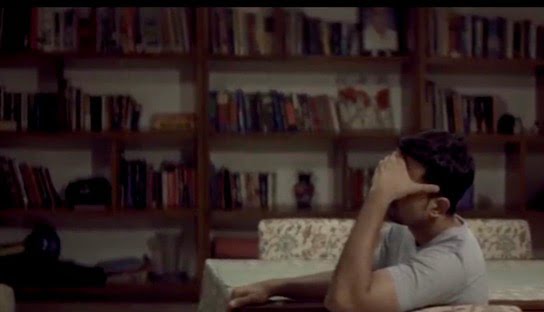Disclaimer: Originally published in July 2019. It is being republished since it still remains an interesting topic till today.
What would you do if you were to find yourself in a kind of predicament you failed to understand yourself? This cautionary tale tells you that violence can take on more forms than one.
Suno, a short film directed by Shubham Yogi, traces the journey of a married couple thrust into the domain of domestic violence.
It revolves around the aftermath of the incident rather than the incident itself.
The first scene opens with a visit to the doctor’s office.
A bruise on the wife’s face becomes the remnant of an experimental night, which then raises suspicion in the minds of co-workers and neighbours.
The rest of the film details the contrasting routes the wife (Amrita Puri) and the husband (Sumeet Vyas) take towards grasping the scope of domestic violence and understanding its nature.
Numerous external influences play on the wife’s understanding of the act. While the husband perceives it as a mere accident, the wife struggles to discern its connotations.

The portrayal of the male in Suno adds a touch of realism to his identity as he isn’t starkly black-and-white, thus enabling his character to assume as human a form as possible. Instances of him being affectionate and cooking daal for his wife re-affirm the same.
Suno emerges victorious in encompassing the mental conflict of the wife and the ignorance of the husband.
While the beginning of this short flick is characterized by undercurrents of ambiguity, the latter half makes it clear to the viewer that the ‘bruise’ is beyond just a bedroom accident and is rooted in a deeper psychological gender imbalance.
Also Read: I Was Once Brainwashed By Western Beauty Ideals To The Extent Where All I Wanted Was To Be ‘Fair’
The male character doesn’t inherently mean harm to the female, but years of collective gender evolution culminated in his subconscious adoption of patriarchal attitudes. In this case, it is subtle beyond comprehension.
The subliminal misogyny nestled in the male’s mindset is reflected towards the end too when he dictates his wife’s activities and justifies it in the name of being her ‘husband’.
Lack of female agency behind closed doors is one of the salient features of the film ‘Suno.’
What is also noteworthy is its urban setting as it points to the existence of these social evils in more developed areas as well.
In the end, the husband sinks into a chair which hints at his possible realization of his actions. Perhaps, this scene is meant to be a greater call for us to revaluate the nature of our relationships too.
Lastly, the storyline of the film does justice to its title beautifully. There are numerous instances in the film which allude to the husband’s ignorance – in the car, at breakfast when his wife informs him about a domestic violence convention, and in the bedroom, where he skips over the most important part in any relationship: consent.

Suno approaches the themes of domestic violence, marital rape and consent with subtlety, but leaves an equally resounding impact throughout the minds of its viewers.
Image Credits: Google Images
Source: Suno
Find the blogger: @microrgasm
Other Recommendations:
Demystifier: Hitler’s Indian Army That Fought Against The British Rule





























